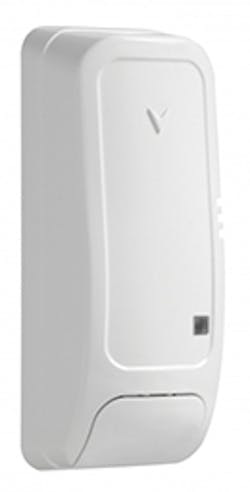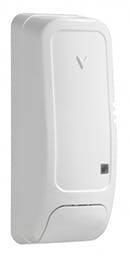Best practices can ensure cold chain security
June 24, 2014
5 min read
Situational analysis of the cold chain
We have seen a dramatic increase in the globalization and complexity of the supply chain over the past decade, exposing risks to the safety of various goods along the cold chain—specifically pharmaceuticals and food—ultimately impacting businesses and, most importantly, consumers.
Today materials are procured from multiple countries, manufactured elsewhere, potentially packaged in yet another country, and distributed and sold globally. To successfully protect against and mitigate risks, companies should consider building a proactive cold chain security program that delivers real-time actionable intelligence necessary to not only protect a brand but also the many people connected to that brand.
According to an independent study conducted by a TycoIS partner, 80% of refrigerated food warehouse respondents say environmental monitoring is either critically important or very important to their business. This is likely because the extensive costs associated with a crisis or disruption in the cold chain can include recall costs, revenue loss, and legal costs for damage to health or life, in addition to regulatory fines. Facilities storing perishable products are typically required to meet strict regulations that not only encompass monitoring but also logging data. Ultimately, complications in any supply chain impact a brand’s reputation and require time and investment to rebuild trust among constituents.
A proactive cold chain security plan that encompasses critical condition monitoring services, fleet management and control, and physical security information management (PSIM) throughout the supply chain can protect both integrity and safety of refrigerated goods to help companies comply with operational and regulatory standards, including the landmark Food Safety Modernization Act (FSMA). Furthermore, they can help a business save time and money.Addressing cold chain security
A cloud-based critical-condition monitoring service with wireless sensors can remotely monitor temperature and humidity in facilities while automatically logging data and providing alerts. Remote monitoring provides the ability to review multiple sites from a single location. The wireless sensors can be set for different zones, allowing, for example, freezers and refrigerators in a facility to have different temperature settings and the ability to send alerts for zone-specific violations. It also provides a continual automated log of information, eliminating the need to manually do so while simultaneously ensuring compliance to regulatory standards with an audit trail. Ultimately, a critical-condition monitoring solution minimizes risk of loss or damage of perishable inventory and provides real-time data and alarm notification anytime, anywhere.
Cold chain security should not just be limited to the warehouse, though. For the past four years, food and beverage goods have had the highest incidence of cargo theft as an industry. In 2013, the average loss due to cargo theft in the pharmaceuticals sector increased by 14% from 2012. Moreover, 90% of cargo theft occurs on trucks during transit. An advanced fleet management security system extends security beyond the physical plant to the supply chain and not only allows for monitoring and control of fleet vehicles, but also cargo theft prevention.
A comprehensive fleet management solution with location sensors and an onboard control system can detect trucks that are off-route and remotely shut them down to prevent cargo theft. An additional layer of security can be applied with trailer locking systems that ensure the trailer itself can be locked and secured with GPS. Authorized administrators have the ability to lock or unlock the trailer remotely, and event notifications can be automatically sent to designated personnel when doors are opened and closed.
An advanced fleet security and control solution not only monitors movement, but also enables remote control to address issues in real time. This feature is particularly important for refrigerated goods companies because if a cold chain product is stolen, compromised, and resold into legitimate channels, consumer health is at risk. It is both a public health hazard and a reputational risk for the company.The value of integration
To take cold chain security to the next level, PSIM solutions—such as those offered by Proximex from Tyco Security Products—can automatically link disparate monitoring devices like video, access control, and equipment sensors to minimize risk of manual oversight. Without integration, organizations have to monitor stand-alone sensors, videos, and alarms going off across all warehouse locations, with a very lean staff. PSIM systems correlate relevant information and incidents from multiple systems and can apply corporate policy to enforce consistent actions across the organization.
By integrating video, access control, and critical-condition monitoring in the form of a PSIM solution, businesses can automate their cold chain workflow and systematically organize alerts according to company standards to enable prioritized response. For example, with a refrigerated good, a critical condition that sets off an alert might be a temperature break or a refrigerator door open for more than 30 seconds. An integrated PSIM system raises alerts of such priority so companies can respond proactively and appropriately.
The combination of critical condition monitoring, advanced fleet management security and control, and PSIM goes beyond standard physical security systems. It can address cold chain companies’ unique, rigorous security needs by delivering actionable intelligence needed to react to highest priorities.Proactively planning for future advancements
Coming down the cold chain security pike, the movement toward mobility will continue, such that security professionals will have information needed to monitor the supply chain and react to issues, no matter where they are. Cloud-based solutions will enable viewing, controlling, and alerting of multiple devices and facility locations from anywhere. When integrating these and other technologies into a security plan, it is above all important for any food, beverage, or pharmaceutical company to be proactive. Take some time to identify vulnerabilities, plan on how to mitigate those risks, and implement a comprehensive cold chain security strategy.Don Hsieh is director of commercial and industrial marketing for Tyco Integrated Security.
About the Author
Don Hsieh
Don Hsieh was director of commercial and industrial marketing for Tyco Integrated Security from 2011 to 2016.
Sign up for our eNewsletters
Get the latest news and updates

